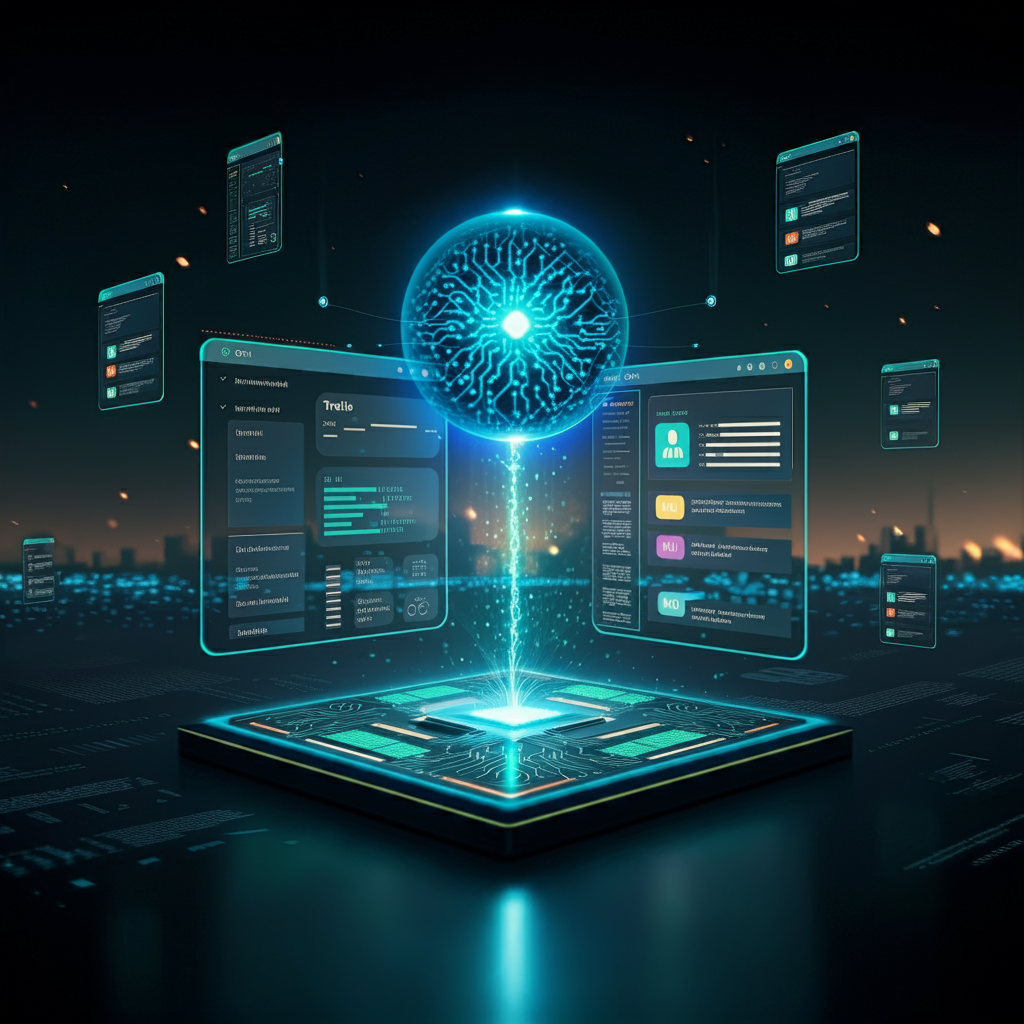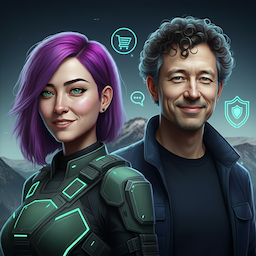The Changing Landscape of Software Development: Why AI is Disproving Uncle Bob's Theory

For decades, software development has been seen as a craft requiring meticulous human oversight, skill, and creativity. One of the most influential figures in the development world, Uncle Bob (Robert C. Martin), author of Clean Code, famously argued that software developers will always be indispensable because they "fill in the details." According to his theory, while automation and AI might assist in writing some basic code, they would never replace the developer's ability to manage complex decision-making, architectural nuances, and detailed implementation.
However, recent advancements in artificial intelligence, particularly the emergence of OpenAI’s O1-mini, are starting to challenge this belief. In an unexpected turn of events, a simple prompt fed into the O1-mini AI generated a fully functional, feature-rich Trello clone—complete with all the bells and whistles, zero placeholder features, and no missing components. The AI handled everything from design to back-end integration, from state management to real-time collaboration. This remarkable demonstration begs the question: Are developers really irreplaceable?
In this blog post, we will delve into how this specific AI-generated example disproves Uncle Bob’s long-standing theory, what this means for the future of software development, and how human developers will need to adapt to stay relevant in an AI-driven world.
Uncle Bob’s Theory: Developers Will Always Be Needed to "Fill in the Details"
In Clean Code, Uncle Bob makes the case that while machines and tools may evolve to assist developers, it is the human element that ensures the integrity of the code. Developers, according to this view, are responsible for the nuances that make software scalable, maintainable, and efficient. Whether it’s deciding on design patterns, optimizing algorithms, or ensuring system architecture is robust, Uncle Bob believes these details require human expertise.
He emphasizes that code isn’t just about functionality—it's about craftsmanship, the subtle decisions that can only be made by someone deeply familiar with the system’s inner workings. This view has been widely accepted across the industry, with many believing that while AI could help with simple, repetitive coding tasks, developers would always be needed for the "hard stuff."
The Prompt That Changed Everything: A Full-Feature Trello Clone from Just a Simple Request
But then came OpenAI’s O1-mini, which flipped this theory on its head with one groundbreaking example. Here’s the exact prompt that led to the creation of a fully functional application:
"Create a fully functional Trello clone with a beautiful design, using Zustand for state management, MUI for the interface, and Supabase for the backend. No parts should be left as ‘todo’ or ‘not implemented.’”
This simple prompt was all it took for OpenAI’s O1-mini to generate a complete Trello-like application with:
- Real-time collaboration: Multiple users could interact with the same boards simultaneously.
- State management: All user sessions, boards, lists, and tasks were handled seamlessly using Zustand.
- Responsive and beautiful UI: The application was built with Material UI (MUI), ensuring a professional design that worked across both desktop and mobile platforms.
- Backend integration: Supabase was integrated to handle user authentication, data storage, and synchronization.
There were no missing features or placeholders for future development—everything was fully functional, ready to use, and scalable. This wasn’t just code generation; this was full software development done autonomously by an AI.
Why This Example Matters
The reason this particular example is so significant is because it goes beyond what even the most optimistic AI proponents expected. Previously, AI models could assist developers by generating simple code snippets or automating repetitive tasks. But generating an entire, functional, real-time web application from scratch—handling everything from the backend to the UI and real-time features—was thought to be well outside the capabilities of AI.
This example directly challenges Uncle Bob’s belief that developers are irreplaceable because of their ability to handle the details. In this case, the AI handled the details flawlessly—from managing real-time state updates to ensuring the user interface was responsive and intuitive. The Trello clone was not just a proof of concept or an MVP; it was a fully operational product that required no further human intervention to function.
What This Means for the Future of Software Development
1. Shifting Roles: From Developer to Prompt Engineer
One immediate implication of this breakthrough is that it redefines what it means to be a developer. With AI capable of generating detailed applications from simple prompts, the focus shifts from writing code to crafting the right prompts. Developers in the future may spend more time on prompt engineering—learning how to precisely instruct AI models to produce the desired output—than on coding itself.
2. Efficiency and Speed: Launching Products Faster Than Ever
The OpenAI O1-mini’s ability to generate a fully functional application in minutes opens up the possibility of radically speeding up the development process. What would normally take a team of developers weeks or even months to complete can now be done in hours, if not minutes. This offers a significant competitive advantage for startups and businesses that need to get products to market quickly. AI isn’t just augmenting development—it’s transforming the entire cycle.
3. Democratizing Software Creation
Perhaps one of the most exciting consequences of this shift is the democratization of software development. If non-technical users can now generate fully operational applications by simply describing what they want in a prompt, this drastically lowers the barrier to entry. Entrepreneurs, creatives, and small businesses can build and deploy complex applications without needing expensive development teams. AI is leveling the playing field in a way we’ve never seen before.
4. What Happens to Developers?
While this may sound like doom and gloom for developers, it doesn’t necessarily mean their extinction. However, it does suggest that developers will need to adapt. Rather than focusing on writing code, developers will need to oversee AI-driven processes, ensure the quality of AI-generated software, and handle complex problems that AI cannot yet solve—such as creative problem-solving, ethical issues, and highly specific edge cases.
Developers will also be instrumental in guiding AI to make sure that generated applications meet certain industry standards, adhere to best practices, and are free of biases or errors. Essentially, the role of the developer could evolve from craftsman to curator, focusing on refining and overseeing AI-generated code rather than writing it from scratch.
How This Example Disproves Uncle Bob’s Theory
At its core, Uncle Bob’s theory rests on the assumption that human developers are needed to fill in the details and make the hard decisions when building software. However, the example of OpenAI O1-mini generating a fully functional Trello clone directly contradicts this. The AI didn’t just create a skeleton; it built the entire application with all the details perfectly filled in.
The fact that this AI model could handle real-time collaboration, user authentication, database integration, and a responsive UI demonstrates that AI can now do what was once thought impossible—generate complete software solutions autonomously. The claim that developers are essential to “fill in the details” no longer holds true when AI can execute those very details just as well, if not better, than human developers.
What Skills Will Developers Need in the Age of AI?
As AI begins to handle more of the development process, developers will need to evolve and focus on areas where human intuition and oversight are still required. Some of the critical skills for the future include:
- Prompt Engineering: Knowing how to craft precise prompts that guide AI to generate the desired output will be a valuable skill as AI becomes a central tool in development.
- AI Oversight and Auditing: Developers will need to ensure that AI-generated applications are safe, ethical, and free from bias. This includes security auditing and maintaining quality control.
- Creative Problem-Solving: AI is excellent at executing clear instructions but struggles with ambiguity and creative problem-solving. Developers will still be needed to handle unique challenges and innovate in ways AI cannot.
- Ethics and Governance: As AI plays a bigger role in software development, there will be an increasing need for developers to ensure that ethical considerations are front and center in every decision made by AI.
Conclusion: A New Era of Software Development
The success of OpenAI’s O1-mini, using nothing more than a simple prompt to generate a fully functional Trello clone, signifies a major turning point in software development. While Uncle Bob’s theory held that human developers are irreplaceable because they fill in the details, this example shows that AI can now handle those very details with precision and accuracy.
The future of software development will undoubtedly still include human developers—but their role is changing. In this new era, developers will need to focus on overseeing AI processes, solving complex problems that AI cannot, and ensuring that software is created ethically and responsibly.
As AI continues to evolve, one thing is clear: the nature of coding, development, and software creation has forever changed, and we are just beginning to see what’s possible.

Lexi Shield: A tech-savvy strategist with a sharp mind for problem-solving, Lexi specializes in data analysis and digital security. Her expertise in navigating complex systems makes her the perfect protector and planner in high-stakes scenarios.
Chen Osipov: A versatile and hands-on field expert, Chen excels in tactical operations and technical gadgetry. With his adaptable skills and practical approach, he is the go-to specialist for on-ground solutions and swift action.
Lexi Shield: A tech-savvy strategist with a sharp mind for problem-solving, Lexi specializes in data analysis and digital security. Her expertise in navigating complex systems makes her the perfect protector and planner in high-stakes scenarios.
Chen Osipov: A versatile and hands-on field expert, Chen excels in tactical operations and technical gadgetry. With his adaptable skills and practical approach, he is the go-to specialist for on-ground solutions and swift action.